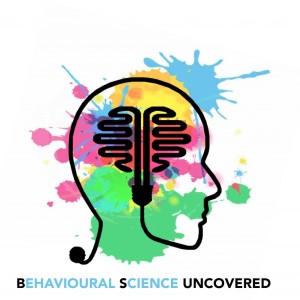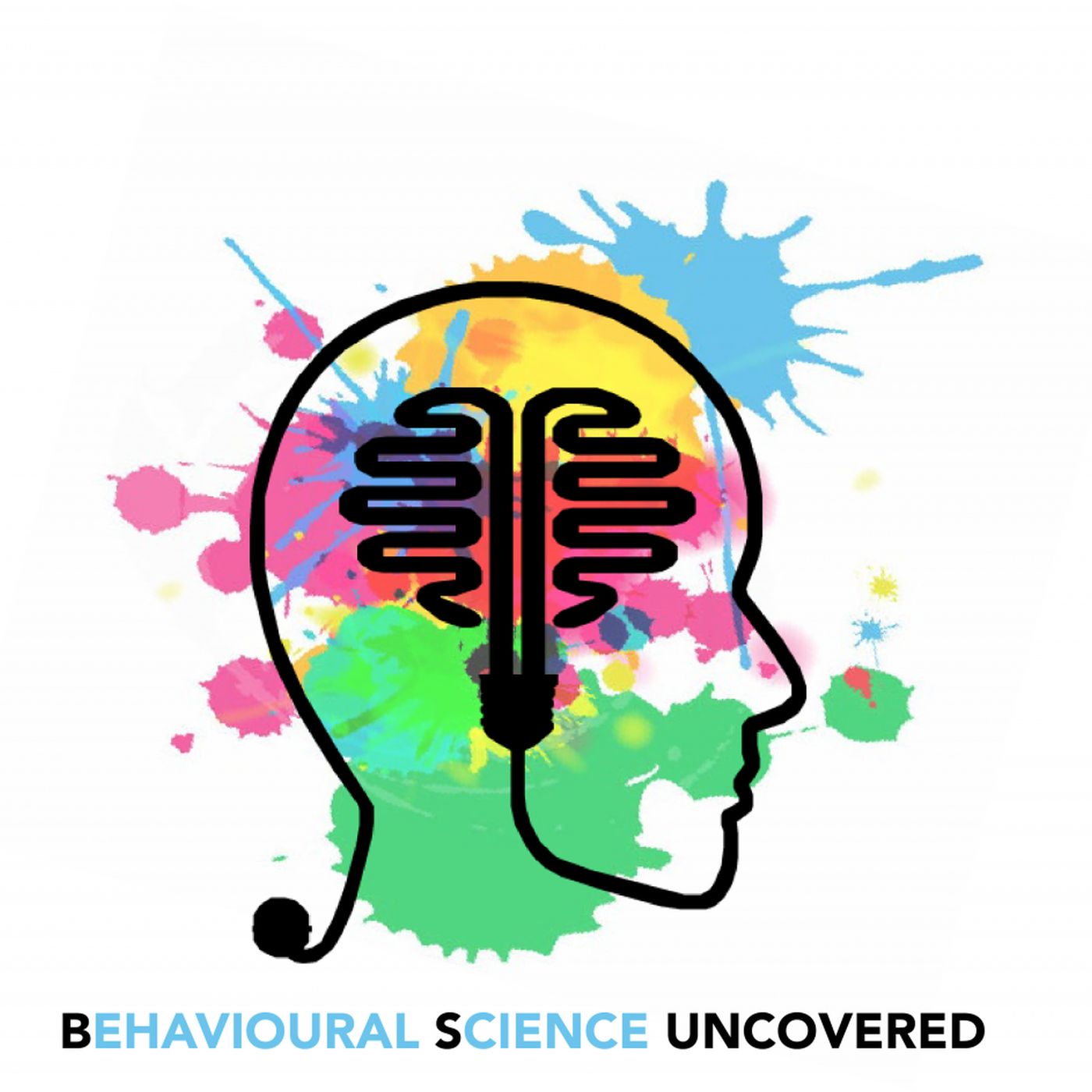Episodes

Sunday May 04, 2025
Social Media and Job Market Success with Yan Chen
Sunday May 04, 2025
Sunday May 04, 2025
In this episode, we talk with Yan Chen about her working paper "Social Media and Job Market Success: A Field Experiment on Twitter," coauthored with Jingyi Qiu, Alan Cohn, and Alvin Roth. The paper investigates the impact of social media promotion on job market outcomes by studying how quote-tweets from prominent economists affect the visibility of job market papers and the success of job candidates. We discuss the challenges of running such a field experiment and reflect on broader issues, including the gender gap in economics.

Wednesday Apr 16, 2025
The Employment Effects of a Guaranteed Income with Eva Vivalt
Wednesday Apr 16, 2025
Wednesday Apr 16, 2025
In this episode, we dive into the study "The Employment Effects of a Guaranteed Income" with one of its authors, Eva Vivalt. Join us as Eva takes us behind the scenes of an ambitious experiment giving unconditional income to low-income individuals in two U.S. states. She discusses some surprising results and shares what it takes to build the relationships and infrastructure needed for large-scale research — including unexpected tasks such as creating a personal handwriting font.

Tuesday Jan 14, 2025
Lying and Memory Lapses with Marie-Claire Villeval
Tuesday Jan 14, 2025
Tuesday Jan 14, 2025
In this episode, we speak with Marie-Claire Villeval about her paper, "Unethical Amnesia Responds More to Instrumental Than to Hedonic Motives," co-authored with Fabio Galeotti and Charlotte Saucet. The research investigates whether memory lapses after lying are more commonly driven by hedonic motives—such as preserving one's moral self-image—or by instrumental motives, like anticipating future dishonest behaviour. During our conversation, we delve into the nuances of studying moral decision-making and lying, the critical role of piloting and experimentation in developing a robust research design, and Marie-Claire’s insights on cultivating innovative research ideas.

Monday Nov 25, 2024
Designing Information Provision Experiments with Chris Roth
Monday Nov 25, 2024
Monday Nov 25, 2024
In this episode, we talk with Chris Roth from the University of Cologne about his paper "Designing Information Provision Experiments". In this paper, Chris and his co-authors review the literature on information provision experiments and derive best practices for designing such experiments. We also discuss determinants of research productivity.

Monday Oct 28, 2024
The No Club: Putting a Stop to Women’s Dead-End Work with Lise Vesterlund
Monday Oct 28, 2024
Monday Oct 28, 2024
In this episode, we talk with Lise Vesterlund about her book “The No Club: Putting a Stop to Women’s Dead-End Work”, co-authored with Linda Babcock, Brenda Peyser, and Laurie Weingart. The book discusses how women are disproportionately assigned non-promotable tasks in the workplace and offers strategies for resisting these burdens to achieve more equitable professional advancement. Our interview focuses on why there is a gender difference in saying no in the workplace, as well as the process of publishing the book.

Monday Sep 30, 2024
Do Virtue Signals Signal Virtue? with Matt Lowe
Monday Sep 30, 2024
Monday Sep 30, 2024
In this episode, we talk with Matt Lowe about his randomised controlled trial, "Do Virtue Signals Signal Virtue?", co-authored with Deivis Angeli. The research examines whether tweets about racial justice predict real-life actions, finding that while people who tweet about racial justice are generally more likely to act in line with those values, the sincerity of these signals diminishes when social pressure to speak out is higher. Our interview focuses on his findings, as well as his experience running a large experiment that involved over 200 research assistants to sample more than 11,000 academics.

Monday Apr 22, 2024
The Curious Culture of Economic Theory with Ran Spiegler
Monday Apr 22, 2024
Monday Apr 22, 2024
In this episode, we talk with Ran Spiegler about his book "The Curious Culture of Economic Theory". The book is a collection of essays about how the professional culture of economics shapes the way theory is done. Our interview focuses on Chapter 8, in which Ran describes the story behind his American Economic Review paper "Search Design and Broad Matching" co-authored with Kfir Eliaz. In this project, Ran and Kfir attempted to study a problem using an established but "unfashionable" modeling approach. Despite getting interesting results, they later rewrote the paper using the standard approach in the literature. Among other things, we discuss why they felt they had to do this and how the new design nudged them into asking certain questions they were originally not interested in.

Sunday Dec 03, 2023
Team incentives and escape rooms with Simeon Schudy
Sunday Dec 03, 2023
Sunday Dec 03, 2023
In this episode, we talk with Simeon Schudy about his working paper "The Effect of Incentives in Non-Routine Analytical Team Tasks", co-authored with Florian Englmaier, Stefan Grimm, Dominik Grothe and David Schindler (forthcoming in the Journal of Political Economy). Using a novel experimental setup, escape rooms, this paper investigates the effect of incentives on performance in non-routine analytical team tasks. The paper studies the value of incentives for both intrinsically and less intrinsically motivated teams. Further, it evaluates how incentives affect team organization and studies the impact of exogenously varying the demand for leadership in such tasks.
The following reference was also mentioned during the conversation:
Englmaier, F., Grimm, S., Grothe, D., Schindler, D., and Schudy, S. (2021): "The Efficacy of Tournaments for Non-Routine Team Tasks", forthcoming in the Journal of Labor Economics.

Wednesday Mar 08, 2023
Enabling or Limiting Cognitive Flexibility with Marta Serra-Garcia
Wednesday Mar 08, 2023
Wednesday Mar 08, 2023
In this episode, we talk with Marta Serra-Garcia Marta Serra-Garcia about her American Economic Review paper "Enabling or Limiting Cognitive Flexibility? Evidence of Demand for Moral Commitment," co-authored with Silvia Saccardo. This paper investigates the nature and flexibility of self-serving beliefs in decision environments where morals and personal incentives are in conflict. Through laboratory experiments, the authors distinguish participants who are willing to curb opportunities for self-serving beliefs, favouring moral behaviour, from those who seek the cognitive flexibility to entertain beliefs that can justify their selfish decisions.

Sunday Dec 04, 2022
Cash Transfers & Psychotherapy with Johannes Haushofer
Sunday Dec 04, 2022
Sunday Dec 04, 2022
In this episode, we talk with Johannes Haushofer about his paper “The Comparative Impact of Cash Transfers and a Psychotherapy Program on Psychological and Economic Well-being” co-authored with Robert Mudida and Jeremy Shapiro. This paper explores the possible interactive or synergetic effects between cash transfers and a psychotherapy intervention in Kenya. We discuss the surprising results of this study, some of the biggest challenges and ethical considerations such as the collection of sensitive data and randomisation of cash transfers itself.

